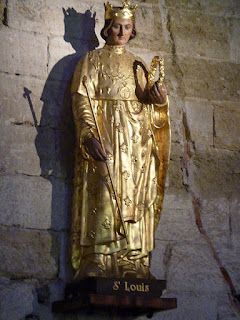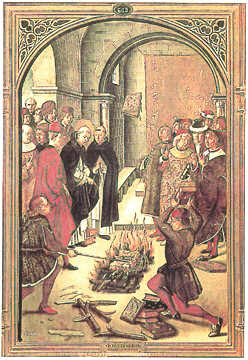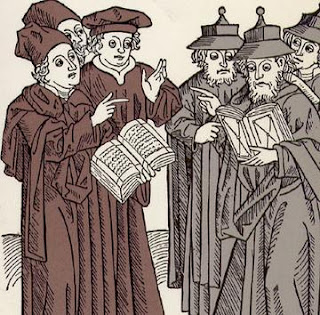Louis' devotion led him to go on two Crusades. He could not convince any of the rulers of Europe to go on Crusade, so he organized and funded the 7th Crusade himself; it did not go very well. The 8th Crusade went even more poorly, and he died while on it.
His failure at Crusading enhanced rather than tarnished his reputation, however, since it showed his religious devotion to one and all. He also built the Sainte-Chapelle ("Holy Chapel") solely to house the Crown of Thorns, which he had received from Baldwin II by paying off a debt of Baldwin for 135,000 livres.
Louis also presided over the Disputations of Paris (parts one and two) in which Jewish leaders were forced to respond to charges of anti-Christian passages in the Talmud, copies of which he would have collected and destroyed. Along with this, he expanded the Inquisition.
Part of his devotion was because he considered French to be foremost in protecting the Church, since the first Christian named "Holy Roman Emperor" was Charlemagne of the Franks. He though France had an obligation as the "eldest daughter of the Church" to lead in Christian behavior, proselytizing, and freeing the Holy Land.
He died in 1270 at Tunis, and the body to be transported from the north coast of Africa to Sicily, thence through Italy, across the Alps, and most of France until they reached St.-Denis. He was declared a saint in 1297 by Pope Boniface VIII.
Here's a question: if someone dies while traveling, what s done with the body? A person of no status might be buried right there. Maybe they'd be wrapped in canvas, or a coffin would be procured. What about a royal personage, though, one for whom you have great respect? How do you prepare a body? Let's talk about that tomorrow.




